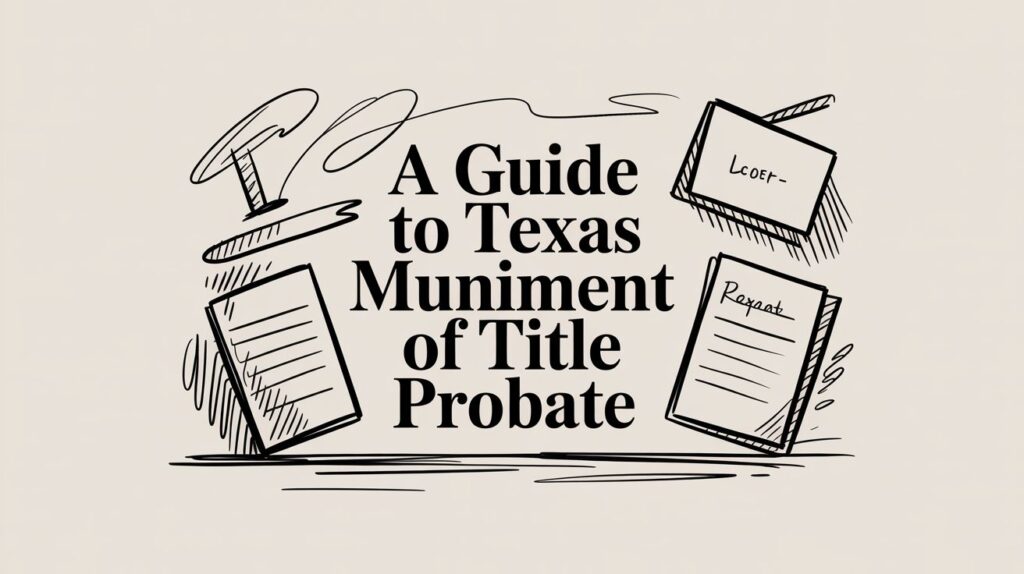Losing a loved one is hard enough without having to untangle the legal knots they left behind. One of the most pressing questions families face after a death is this: When should you file a probate case? It’s a question that doesn’t always have a simple answer. Timing matters—not just emotionally, but legally. Miss a deadline, and you could lose your right to control the estate. File too soon, and you might end up wasting time, money, and emotional energy.
This article offers a complete breakdown of when to file a probate case, how the timeline works, and what factors should guide your decision. We’ll cover legal deadlines, practical scenarios, exceptions to the rules, and real-life stories that show how timing can make or break a probate case. By the end, you’ll know exactly what to do—and when.

Understanding Probate: Why It Exists
The Court’s Role in Wrapping Up a Life
Before we dive into timing, it’s important to understand what probate is. Probate is the legal process through which a court:
- Validates the deceased’s will (if there is one)
- Appoints an executor or administrator to manage the estate
- Ensures that all debts, taxes, and final expenses are paid
- Distributes the remaining assets to rightful heirs or beneficiaries
If the decedent left a will, the process is about honoring those wishes. If there’s no will, the court applies intestacy laws, which vary by state, to divide the estate.
Now that we’ve got that covered, let’s talk about the heart of the matter—when should you file a probate case?
The Probate Filing Timeline: General Guidelines
Every State Has Its Own Clock
In most states, probate laws require that the case be filed within a certain timeframe. This is typically known as the statute of limitations for probate, and it varies depending on where you live.
Here are some common examples:
- Texas: A will must generally be filed within four years from the date of death.
- California: Probate should begin within 30 days of the will being located.
- Florida: There’s no strict deadline to file, but delay can complicate the process.
Missing the deadline could mean the will is no longer valid in court, and the estate would then be handled as if no will existed. That’s why answering “when should you file a probate case?” accurately means knowing your state’s deadlines.
When Filing Immediately Makes Sense
The “Don’t Wait” Scenarios
In some cases, time is of the essence. Here are some situations where you should file a probate case as soon as possible:
1. The Decedent Owned Property That Needs to Be Sold
If real estate is part of the estate and needs to be sold quickly (due to mortgage payments or maintenance costs), you’ll need court approval to proceed.
2. There Are Creditors or Lawsuits Pending
Filing quickly allows you to protect the estate from creditors by notifying them through the court process. It also starts the clock on deadlines they have to make a claim.
3. The Will Names a Specific Executor
Some responsibilities, like accessing bank accounts or transferring title to a vehicle, require legal authority—authority you won’t have until you file and the court approves your appointment.
Real-Life Example: Susan’s Urgent Probate Filing
Susan’s mother passed away in Austin, Texas, and left behind a home with a reverse mortgage. The lender gave her 90 days to repay the loan or sell the home. Susan filed for probate the next week. The quick filing allowed her to get appointed as executor, sell the home, and avoid foreclosure.
This story illustrates that in cases involving deadlines or asset protection, filing a probate case immediately is often the best move.
When You Might Wait to File a Probate Case
The “Hold Off” Scenarios
Surprisingly, there are times when waiting to file a probate case might be a strategic decision.
1. The Estate Is Very Small
In many states, estates under a certain dollar threshold qualify for simplified probate or even affidavits of heirship. Waiting a few months for accounts to settle and debts to clear could streamline the process.
2. There’s Conflict Among Heirs
In emotionally charged families, diving into probate right after a death can inflame tensions. Sometimes, waiting until emotions cool can make for a smoother process.
3. The Will Is Being Located or Updated
If you suspect there’s a more recent version of the will, or you’re waiting for one to be found, you may need to hold off. Filing the wrong will can waste time and money.
4. The Executor Is Not Ready
If the named executor is grieving, out of the country, or otherwise unavailable, it may be best to wait a few weeks rather than rush into filing and risk procedural errors.

Is There Ever a Time Not to File at All?
Yes—And Here’s Why
Sometimes, filing a probate case isn’t necessary at all. This happens when:
- All assets pass directly to beneficiaries via joint ownership, trusts, or designated beneficiaries
- There’s no real estate and the estate value is under the small estate threshold
- All debts exceed the value of the estate, making it insolvent
In such cases, legal advice can help you determine whether probate is required—or if it can be avoided altogether.
Key Factors That Influence When You Should File a Probate Case
Legal, Financial, and Personal Elements to Consider
Several elements play into deciding when to file a probate case, including:
- Whether there’s a will
- How much and what kind of property is involved
- Whether creditors are waiting
- Family dynamics
- The health of the executor or administrator
- State-specific laws
Taking all of these into account can help you strategically time your filing, rather than rushing or delaying for the wrong reasons.
How to Know If Probate Is Necessary
Ask These Questions
If you’re unsure whether to file, ask yourself:
- Was there a will?
- Are there assets in the decedent’s name only?
- Is there real estate that isn’t held jointly?
- Are there debts that need to be resolved?
- Do you need legal authority to access accounts or transfer property?
If the answer to any of these is yes, you probably need to file a probate case. The next step is determining when to file it.
Common Mistakes People Make With Probate Timing
Learn from Other People’s Missteps
Let’s walk through some common errors that come up when people don’t understand when to file a probate case:
1. Waiting Too Long
Many people think they have “plenty of time,” only to find out later that legal deadlines have passed—or that bills have piled up.
2. Rushing Too Quickly
Grief is powerful, and sometimes people throw themselves into legal tasks to avoid feeling pain. But rushing to file without understanding the process can cause avoidable errors.
3. Filing the Wrong Will
Families sometimes file outdated or unsigned wills, thinking it’s the “official” one. This can lead to confusion, delays, and even litigation.
4. Not Consulting an Attorney
Even a short legal consultation can help you figure out if, when, and how to file. Skipping this step often leads to mistakes that are hard to fix later.

How to File a Probate Case: Step-by-Step Overview
From Paperwork to Courtroom
Once you’ve decided the timing is right, here’s a general overview of the filing process:
- Locate the will (if applicable)
- Gather essential documents (death certificate, list of assets, debts)
- Choose the appropriate court in the decedent’s county
- Complete and file the probate petition
- Attend a hearing, if required
- Receive official letters of administration or testamentary authority
Once the court approves, you’ll be legally authorized to act on behalf of the estate.
Real-Life Example: Delayed Filing That Created Chaos
Lena’s uncle passed away in Fort Worth and named her as the executor in his will. She assumed there was no rush and waited 11 months before filing. By then:
- The deceased’s bank accounts had been frozen
- His house had accrued a year’s worth of unpaid taxes
- One of his creditors had filed a claim
- A cousin started a competing case, alleging a newer will existed
Lena’s failure to act early turned what should have been a smooth estate administration into a multi-year legal battle. Her experience serves as a cautionary tale for others unsure about when to file a probate case.
What If You’re Out of State?
Timing Is Still on the Clock
Being an out-of-state executor or heir adds complications, but it doesn’t stop the timeline. You can:
- Work with a local attorney to file on your behalf
- Use e-filing (available in many Texas counties and other states)
- Coordinate document signing and notary services remotely

Even if you’re across the country, probate timelines still apply. Delay can mean losing authority or creating room for contested filings.
Wrapping It Up: When Should You File a Probate Case?
Timing Is More Than a Deadline—It’s a Strategy
Filing a probate case isn’t something you do lightly—but it’s also not something you should delay unnecessarily. The best time to file depends on your unique circumstances: the type of assets involved, the emotional state of the family, the legal deadlines in your state, and whether a will is even available.
If you’re still asking yourself, “When should you file a probate case?” here’s a simple rule of thumb: file when it makes legal, financial, and emotional sense—but always before the legal window closes.
Consult a probate attorney. Use your local court’s resources. And above all, stay proactive. Because in the world of estate administration, timing isn’t everything—but it’s close.








